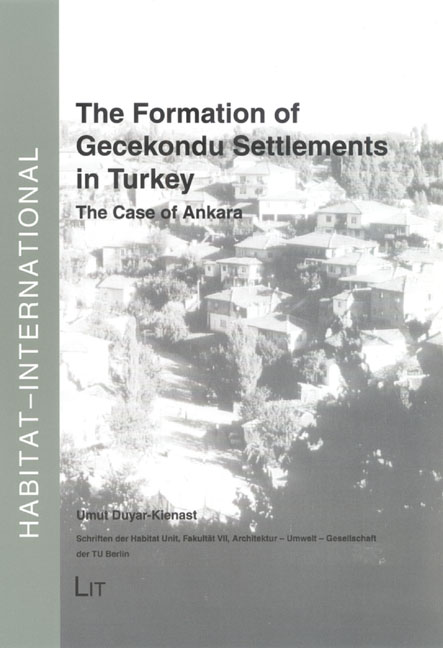Beschreibung
In Turkey, since the middle of the 1940s, gecekondu (squatter) settlements
have emerged in an urban context characterised by rapid rural-to-urban
migration, inefficient administrative structures and intense land
speculation. Today, some practices of the early gecekondu are still in
use, while its dwellers have introduced new strategies to avoid
demolition, get access to infrastructure and achieve legalisation. Recent
gecekondu builders by-pass planning authorities by adopting tools of
formal planning. At the same time local authorities bend their own rules
and tend to tolerate informalities.
Umut Duyar-Kienast is a city and regional planner. She has been working as
a freelance consultant in community development and slum upgrading
projects in Turkey, Germany and Mozambique.


